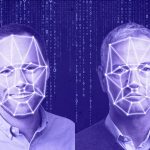Introduction
The boundaries between entertainment, politics, and technology are fading as digital innovation reshapes how societies connect and communicate. Artificial intelligence, social media, and celebrity influence have created a world where global narratives are built in real time, reaching billions within seconds. Governments, corporations, and cultural icons are all competing for influence in this hyperconnected environment.
This digital era has transformed the concept of power itself. Politicians use AI to analyze trends and predict public behavior, while celebrities lead global conversations about ethics, justice, and innovation. As technology amplifies voices across continents, the question arises: who truly controls the flow of information and the direction of public thought in this age of digital diplomacy?
The New Language of Global Influence
Artificial intelligence has redefined communication between nations and citizens. Data-driven insights allow political leaders to understand public opinion more precisely than ever before. International diplomacy now includes cyber negotiations, digital treaties, and virtual summits powered by AI translation and data analysis tools.
However, this digital transformation brings challenges alongside progress. Misinformation, digital espionage, and data manipulation have emerged as new threats to global stability. The rise of technology as a diplomatic tool requires careful regulation to preserve transparency and trust in international relations.
Celebrity Power and Political Engagement
Celebrities today hold more political influence than many world leaders. Through social media, they mobilize millions of followers, amplify humanitarian causes, and challenge governments on issues ranging from climate change to digital privacy. Figures like Greta Thunberg, Rihanna, and Elon Musk exemplify how fame can be converted into social activism and political engagement.
Yet this power comes with responsibility. While some celebrities promote well-researched advocacy, others risk spreading misinformation or oversimplifying complex issues. The global reach of celebrity influence demands a balance between passion and precision, ensuring that digital activism contributes to meaningful progress rather than fleeting online trends.
The Political Economics of AI Development
AI has become the economic engine of global politics, influencing trade, security, and job creation. Nations that dominate AI technology control the world’s most valuable resource—data. This control enables them to dictate market trends and even shape international policy decisions.
The global AI race has sparked debates about fairness and accessibility. Developing nations face challenges in competing with tech superpowers that possess vast financial and technological advantages. Without cooperation and shared innovation, the world risks deepening economic divides that could destabilize international relations.
Cultural Diplomacy in the Digital Space
Technology has turned culture into one of the most powerful tools of diplomacy. Music, films, and online content transcend borders, shaping perceptions of nations and people. Platforms like YouTube, TikTok, and Netflix have become informal channels of global dialogue, where ideas about identity and freedom are exchanged daily.
Celebrities, as cultural ambassadors, play a key role in this digital diplomacy. Their influence extends beyond entertainment, shaping discussions on social justice, sustainability, and technological ethics. Through collaboration and creativity, culture has become a soft power capable of uniting people across ideological and political divides.
AI, Ethics, and the Global Responsibility Gap
The ethical use of AI remains one of the most debated issues in global politics. Algorithms influence everything from credit approvals to criminal sentencing, raising concerns about bias and accountability. Governments are now under pressure to establish international laws that ensure AI serves humanity rather than exploiting it.
Celebrities and activists have joined this debate, using their platforms to demand greater transparency in AI design and application. Their involvement bridges the gap between expert discussions and public awareness, ensuring that ethical technology remains a shared global priority.
Technology and the Evolution of Leadership
Leadership in the 21st century is no longer defined by charisma or authority alone—it requires digital intelligence. Politicians and public figures must navigate online platforms strategically, mastering the art of communication in a fast-moving, data-driven environment. Those who fail to adapt risk losing relevance in an era defined by information speed and emotional connection.
AI-driven analytics now play a major role in leadership strategy. Governments use digital tools to forecast public reactions and design policies that resonate with citizens’ values. This blending of technology and governance marks a new era where emotional intelligence meets algorithmic precision.
FAQs
How does technology shape modern politics?
Technology influences every level of politics—from elections and policymaking to international diplomacy—by providing real-time data and predictive insights.
Why are celebrities important in global discussions?
Celebrities amplify awareness of critical global issues, using their influence to inspire change and hold governments accountable.
What is digital diplomacy?
Digital diplomacy involves the use of technology and social media by governments and leaders to conduct international relations and engage with citizens.
Can AI impact global economic balance?
Yes, nations with greater AI capabilities have more control over markets, trade, and innovation, which can widen global economic disparities.
Why is ethical AI a global concern?
Unregulated AI can lead to bias, surveillance, and inequality. Global cooperation is essential to ensure AI development aligns with human rights and fairness.
Conclusion
The merging of technology, politics, and celebrity culture is redefining how power functions in the modern world. AI fuels innovation, celebrities shape narratives, and global leaders adapt to the rhythm of digital influence. Together, these forces determine how societies evolve, connect, and govern themselves in an age of instant communication.
If balanced with ethical awareness and collaboration, this interconnected system could lead to a future of transparency, inclusion, and shared progress. The challenge lies not in technology itself, but in how humanity chooses to wield its power—wisely, responsibly, and for the greater global good.









